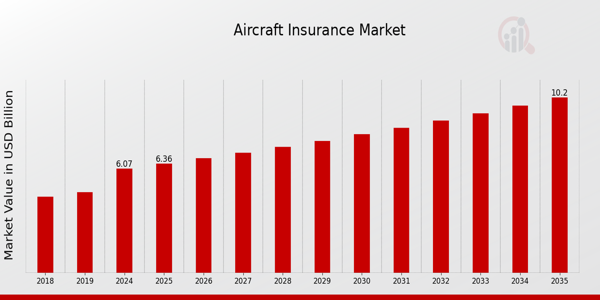The Role of AI in Streamlining Business Operations
Artificial Intelligence (AI) is fundamentally changing the way businesses operate, offering new levels of efficiency, precision, and scalability. As industries adopt AI-driven tools, everyday tasks are becoming more automated and data-driven, enabling faster decision-making and reduced operational costs. Central to this evolution is the integration of smart technology, which connects devices and systems to streamline workflows, enhance productivity, and adapt to dynamic business environments.
Automating Repetitive Processes with AI
AI excels at taking over repetitive, time-consuming tasks that once required significant human effort. From customer support to internal communications, AI systems are designed to handle high volumes of routine tasks, freeing employees to focus on strategic goals.
Areas Where AI Improves Efficiency
-
Customer service chatbots that operate 24/7.
-
Automated invoice processing and expense tracking.
-
Email filtering and auto-response systems.
Enhancing Data-Driven Decision Making
AI provides real-time insights by processing vast amounts of data quickly and accurately. Businesses are using AI algorithms to uncover trends, predict outcomes, and guide critical decisions across departments like marketing, sales, and finance.
AI Tools That Support Better Decisions
-
Predictive analytics for sales forecasting.
-
Real-time performance dashboards for operations.
-
AI-assisted competitor analysis and market trends.
Transforming Customer Engagement
AI enables businesses to understand customer behavior and preferences, leading to highly personalized engagement strategies. From product recommendations to interactive virtual assistants, AI enhances the customer experience at every touchpoint.
Smart AI Features for Customer Interaction
-
Personalized shopping recommendations on e-commerce platforms.
-
AI-powered chatbots that handle inquiries and complaints.
-
Voice assistants that help customers navigate services and products.
Optimizing Supply Chain and Inventory Management
The supply chain has seen significant improvements with AI integration. AI solutions help predict inventory needs, optimize shipping routes, and reduce waste by analyzing real-time demand and logistics data.
AI Innovations in Supply Chain
-
Demand forecasting tools that minimize overstocking.
-
Smart routing systems that reduce delivery times.
-
Automated restocking alerts linked to inventory levels.
Streamlining Internal Communication and Collaboration
Efficient collaboration tools powered by AI help streamline internal communication. These systems organize workflows, schedule tasks, and ensure that team members stay aligned and productive.
Key Benefits of AI in Team Management
-
AI project management platforms that assign and track tasks.
-
Intelligent scheduling assistants that coordinate meetings.
-
Sentiment analysis tools that gauge team morale.
Cybersecurity and Risk Mitigation
AI strengthens business security by monitoring networks, detecting threats, and responding to incidents in real time. These intelligent systems can identify anomalies and prevent breaches before they cause harm.
AI Security Features
-
AI-driven intrusion detection systems.
-
Fraud prevention algorithms in financial platforms.
-
Behavioral analytics to identify suspicious activity.
Scalability Through AI Innovation
AI not only supports current business operations but also enables growth without increasing overhead. With AI, companies can scale their processes, handle larger data volumes, and enter new markets more efficiently.
How AI Supports Business Expansion
-
Scalable cloud-based AI platforms.
-
Automated customer acquisition tools.
-
Rapid testing and deployment of new services.
Conclusion
AI is a powerful force in streamlining business operations, offering solutions that automate tasks, enhance decision-making, and improve customer engagement. With the integration of smart technology, businesses are better equipped to adapt to market changes, reduce inefficiencies, and foster innovation. As AI continues to evolve, its role in shaping the future of business will only grow more significant, making it an essential component of success in the digital age.
Categorias
Leia Mais
Executive Summary Cookies Market : The global cookies market size was valued at USD 26.90 billion in 2024 and is expected to reach USD 43.49 billion by 2032, at a CAGR of 6.19% during the forecast period. The Cookies Market research report concentrates on the foremost competitors of the global market and delivers information about the company...

Tool Holder Market Summary The tool holder market has emerged as an essential component within the broader industrial machinery sector, witnessing considerable growth driven by the demand for precision, efficiency, and automation in manufacturing processes. Tool holders are crucial elements in machine tools, as they secure cutting tools, enabling them to perform operations such as...

Opportunities and Innovations in the Aircraft Insurance Market According to MRFR Analysis, the Aircraft Insurance Market was valued at USD 5.79 Billion in 2023 and is forecasted to reach USD 10.2 Billion by 2035. This growth is driven by rising demand for air travel and stringent regulatory compliance requirements. The market is experiencing notable advancements fueled by technological...

Nel mondo dei casino online, il numero di opzioni disponibili può essere sconcertante casino migliori online. Con diversi siti web che offrono una vasta gamma di giochi e bonus, è facile sentirsi smarrito. Tuttavia, se sei alla ricerca di un'esperienza di gioco di alta qualità e sicura, il nostro articolo ti aiuterà a scoprire i migliori casino online. Bonus e...

In 2024, Dubai’s retail sector recorded a 20% rise in foot traffic across major malls compared to the year before (CBRE UAE Retail Report). That’s a clear sign that shoppers are stepping back into physical stores but with higher expectations. For businesses, this means one thing: if your store design doesn’t capture attention in the first few seconds, you’ve already lost...



